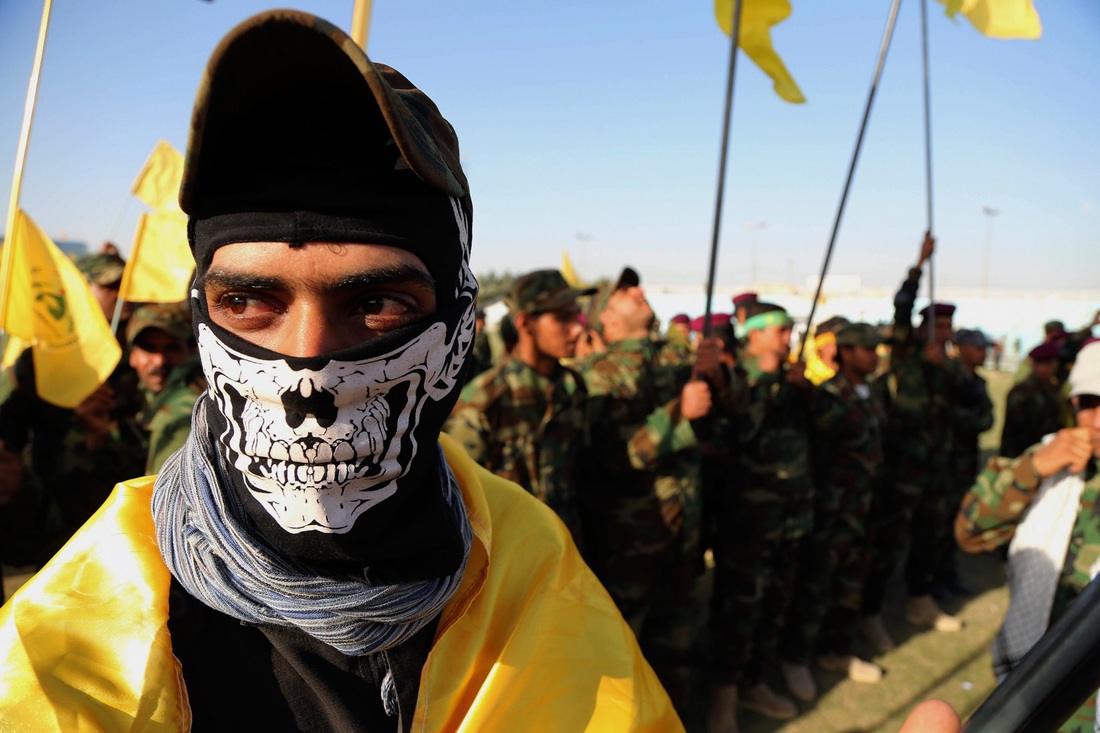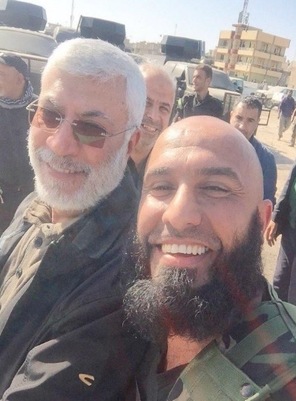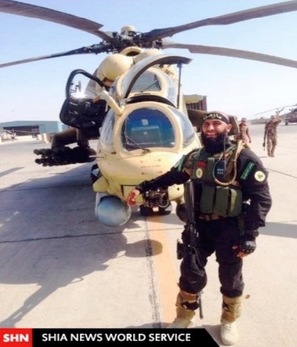There were no armed militias in Iraq before 2003 invasion - except for the Kurdish guerrilla fighters locally called Peshmerga. The first armed militia to officially enter Iraq after the invasion was a small armed group led by Ahmed Chalabi which was meant to protect him.
Chalabi, a controversial Iraqi millionaire who was exiled by Saddam, was directly supported by the United States government. Soon after the invasion, Iran-backed militia Badr Brigades entered into Iraq coming from Iran - where it was trained & equipped since the early 1980s.
Ironically, Chalabi’s militia was disbanded soon after US troops setup and controlled the heavily protected Green Zone which housed Iraqi governments thereafter. In the meanwhile, Shia militias increased in numbers infiltrating Iraqi Security Forces and senior positions in different Ministries of the Iraqi government.
One of the first militias to be formed locally was Mahdi Army militia led by young Muqtada al-Sadr. His militia posed a challenge to Coalition Forces between 2004-2010. Even though Sadr re-structured his militias after 2010, it is still poses a threat to US and foreign personnel in Iraq.
The United States recognise the danger posed by these militias. However, US government have done very little so far to curb the expansion of militias in Iraq. The unchecked expansion of Shia militias in Iraq have undermined the legitimacy of the Iraqi state. This was most salient after the Islamic State in Iraq and al-Sham (ISIS) defeated the corrupt Iraqi Army in June 2014 taking large swathes of lands in Iraq. Militias were ready to take over practically disbanding the Iraqi Army even in other “stable” cities. Militias were supported by Grand Ayatollah Sistani’s fatwa asking fighting age men to carry arms to fight against the Islamic State terror group.
There is a well-documented record of Shia militias’ sectarian crimes in Iraq. Some of these militias are designated terrorist by the US government and other countries. Militias are closely linked to the ruling political parties in Iraq. In order to give legitimacy to these militias, Iraqi government recognised these militias under a specially created government institution, called Hashid al-Sha’bi (Popular Mobilisation Force or PMF), which answers directly to the Prime Minister. PMF has over a 100,000 fighters stationed mainly in Sunni populated cities. Just to give you a sense of the nature of PMF, its deputy leader is a US designated terrorist called Abu Mahdi al-Mohandis.
Impossible Peace
Iraqi government claims that without these armed militias/PMF, Islamic State fighters would have taken more lands threatening the very existence of the Iraqi government. Therefore, PMF is necessary to protect Shia civilians and defeat ISIS. The US and its allies agree to some extent with the Iraqi government argument. Iraqi Sunnis, however, are accusing these Shia militias of committing war crimes, terrorist acts, and sectarian cleansing in Sunni populated areas across Iraq. Human Rights Watch, US Army, the Red Cross, NGOs, and reporters embedded with Iraqi Security Forces/PMF have submitted evidence of systematic extreme violence against Sunnis in Iraq.
In a nutshell, several experts on Iraq argue that Islamist extremist armed groups are the direct result of marginalisation of Sunnis and unchecked brutal sectarian Shia militias. US government officials recognised this “fact”: Iraq stability will not be achieved without having an inclusive government in which Sunnis can be fairly represented. However, ex Prime Minister Nouri al-Maliki uncompromising sectarian policies against Sunnis drove Iraq to the brink. He is widely blamed for the rise of ISIS. He was also favouring militias over a regular Iraqi army - especially in his second term. He became Vice President in the current government. Many say he is the de facto Prime Minister due to his powerful influence over the PMF.
Iraqi Sunni Arab politicians and prominent figures refused repeatedly to have militias/PMF participating in liberating their cities from ISIS. Tikrit was the testing moment for PMF. Militia fighters committed atrocities in Tikrit killing hundred of civilians and destroying entire villages. International news media and the HRW documented PMF atrocities in Tikrit. This explains why the US was against having PMF in liberating Ramadi - a Sunni populated city West of Baghdad.
The surge of Iran-backed militias threaten the integrity and peace of Iraq. Non-state actors like ISIS and PMF are posing an existential threat to Iraq. Shia militias in Iraq are more powerful than Iraqi army - which makes the Iraqi government weak in imposing the rule of law. Crimes rates in Iraq are on the rise, regionalism & tribalism made a strong return to different parts of Iraq, and investment in Iraq is almost non-existent. Iraqis blame militias for most of these crimes. To conclude, the growing power of Shia militias in Iraq is one of the main obstacle of peace. If Iraq is to become a functioning state, these militias should be disbanded. Iraq needs a regular army and professional security services to impose the rule of law.
Muhanad Seloom
@M_Seloom
The author is a London based Iraqi expert on terrorism, who wrote this article for the FRB-I




 RSS Feed
RSS Feed